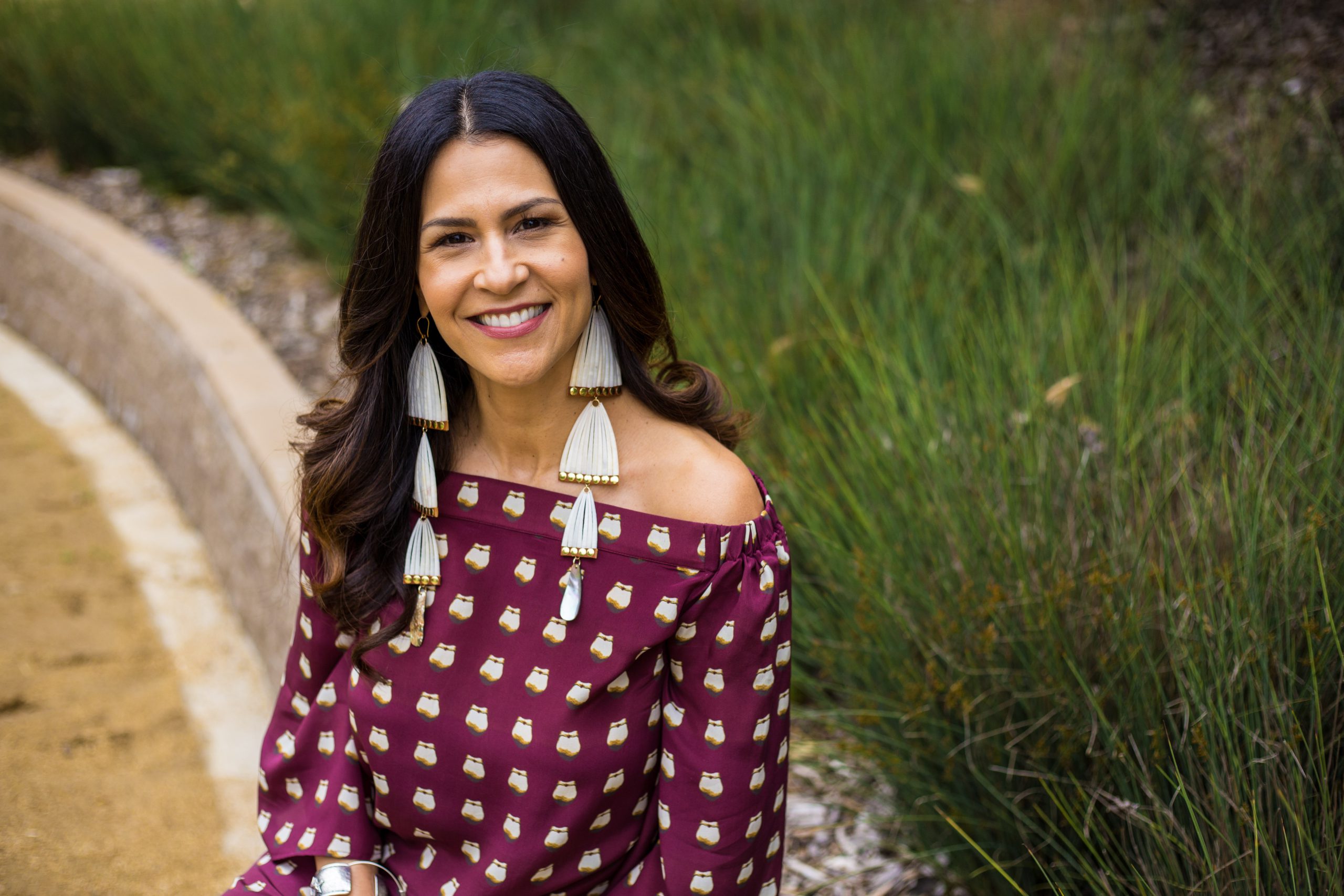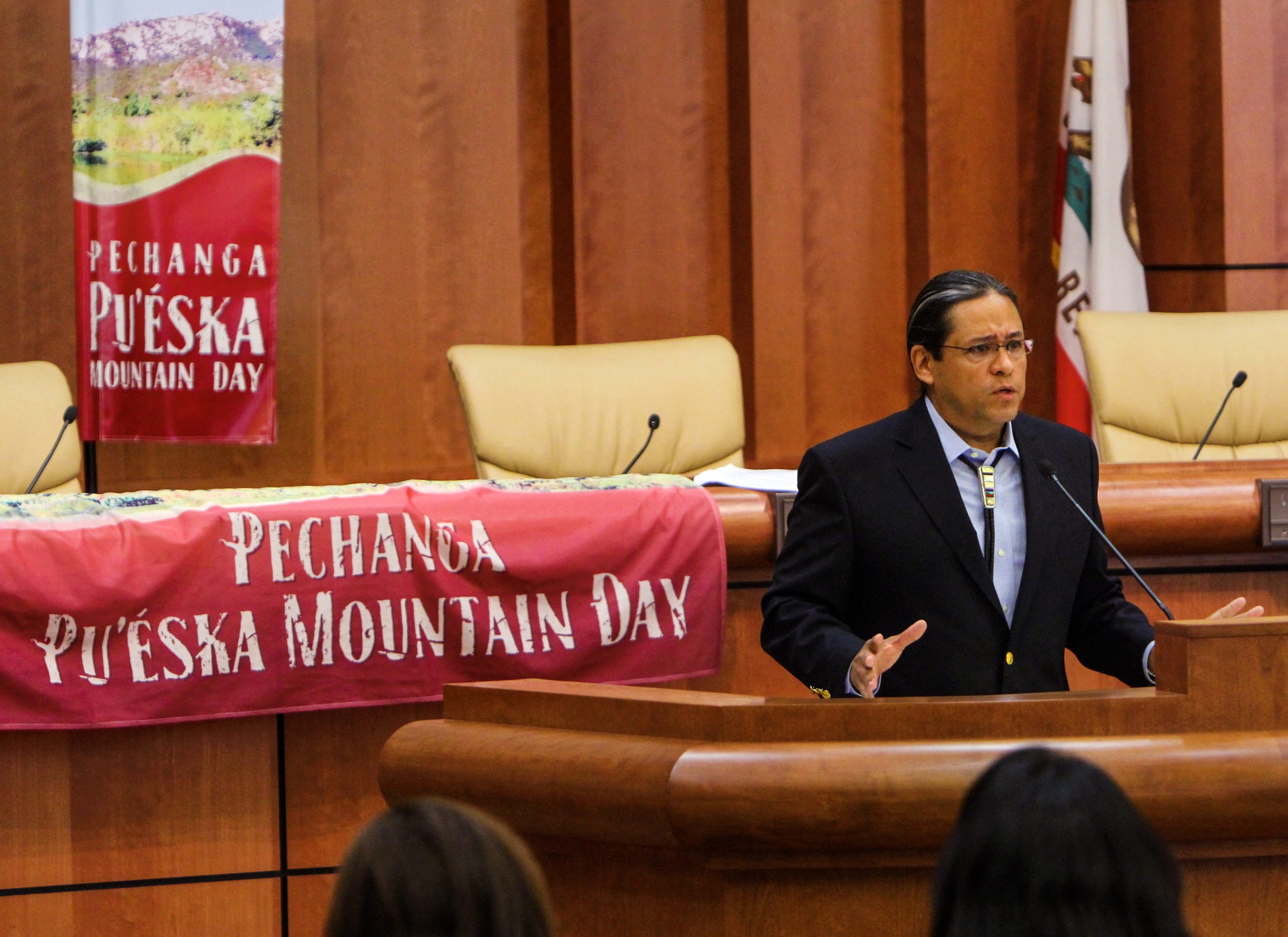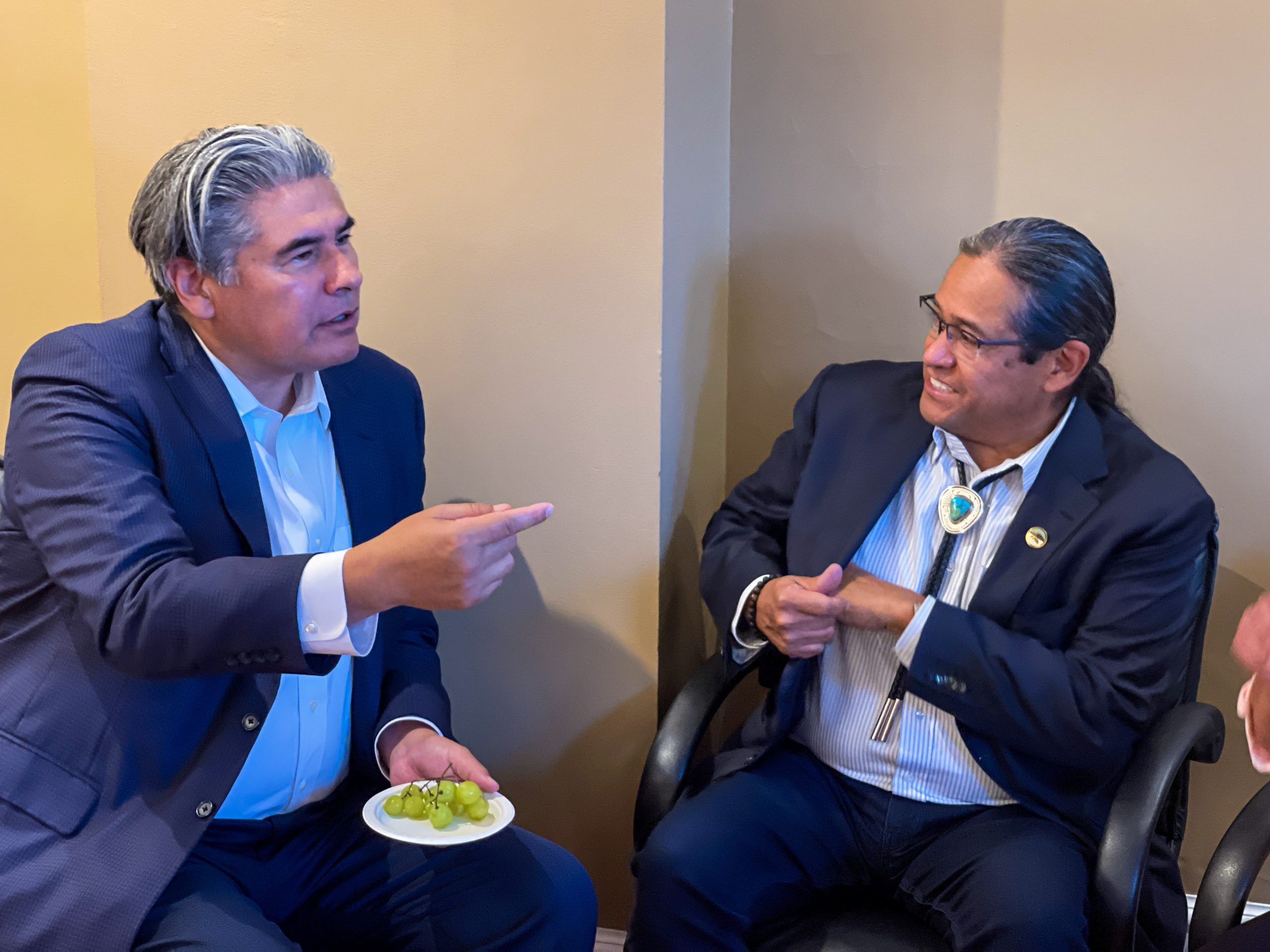

Proudfit also said Macarro, who has served as chairman since 1995, helped her with the enrollment process. The pair once worked side-by-side during the campaigns for Proposition 1A and Proposition 5, the ballot initiatives that paved the way for the Pechanga Band to operate one of the most successful Indian gaming enterprises in California. “I even received handwritten genealogy assistance from Mark Macarro to support my enrollment,” Proudfit told Indianz.Com. But in a nod to Macarro’s role as leader of the tribe, she added: “Then came the enrollment moratorium he imposed at Pechanga.” “My mother and grandmother have since walked on, which further disqualifies me for Pechanga enrollment,” she said. Separate from her tribal membership efforts, Proudfit said the Bureau of Indian Affairs has “documented my ancestors as being from Pechanga.” The BIA, a federal agency, can fulfill requests for people who want to document their American Indian or Alaska Native ancestry — based on information provided by the applicant. “I also possess a federal Certificate of Indian Blood that identifies me as of Pechanga lineage,” Proudfit stated.On Native American Day, Governor Newsom signs some good bills and I’m so happy about AB2022. No more S-word. Thank you @AsmJamesRamos. And always respect to Suzan Shown Harjo for inspiring us to stay the course and fight for change. ❤️🪶 https://t.co/nt7hwjOeZ7
— Joely Proudfit, Ph.D. (@Nativeprof) September 24, 2022

So when it comes to the determination that Proudfit is not a “descendent” of Payómkawichum, he believes the tribe’s statement falls short. “You notice how Pechanga put that information out there, but they didn’t prove it,” Cuevas said. “They didn’t offer any proof that she wasn’t.” Further, he said the reason Proudfit’s “forebears” were not enrolled, as noted in the statement, is not based on ancestry but largely on timing. The Pechanga Band’s enrollment process formally began in the late 1970s and some parents, grandparents, cousins and other relatives have been left out. “Those kind of word salad statements never, you know, they don’t really jibe with the truth,” Cuevas said in the interview. According to Cuevas, the Pechanga Band’s enrollment matters, which have been covered frequently by the Native and mainstream media, affect the tribe’s future in significant ways. If the tribe were to lift the moratorium, address the mass disenrollments and welcome all Payómkawichum, he said the politicians currently in power would face a reckoning. “It’s to control power,” Cuevas said of the tribe’s enrollment decisions. “Imagine what would happen, or the chaos that would happen, if they did the right thing and brought us back where we belong,” he continued. “The voting power would change, the family dynamics would change.” “My family has 140 adults now,” Cuevas added, though many like him have been removed from the rolls. “That would change a lot of the vote — the way voting goes, the discussions at the tribal meetings and general council meetings.” But another person who has worked in Indian issues in California for more than 25 years believes the statement about Proudfit, with its direct wording, is less about internal matters than about external ones. The tribe appears to be tired of seeing people profit off its name, according to the source. “The tribal statement will chase away the Hollywood jobs,” the person said. As the founder of Native Media Strategies, Proudfit has used her considerable background and knowledge to help bring stories about Native people to light in television and film. She served as a consultant on Hostiles, the 2018 film that won praise for its depiction of tribal people during a critical time in U.S. history and policy in the late 1800s. Proudfit, who has held a number of appointed Indian affairs positions in state and federal government, also helps stories told directly by Native people come to life. She recently worked as a consultant on Spirit Rangers, an animated show on Netflix that debuts next week — on Indigenous Peoples’s Day on October 10 to be exact.National Congress of American Indians VP Mark Macarro, Violator of The Civil and Human Rights of HUNDREDS of American Indians. Runs Apartheid system in Temecula.https://t.co/G7O00Kn7aS@CForeman31 @indianz @NCAI1944 @SecDebHaaland
— Original Pechanga (@opechanga) October 6, 2022
Spirit Rangers, which is designed with young audiences in mind, showcases the work of Karissa Valencia, who hails from the Santa Ynez Band of Chumash Indians. According to Netflix, she is the “first California Native American showrunner” on the streaming service. “When I was home on the reservation going to bear ceremonies, powwows, or working as a camp counselor for Camp Kalawashaq’, I was constantly inspired by my culture,” Valencia said. She collaborated with the Santa Ynez Band’s Culture Department to help tell the stories of her community. “With the Elders’ support, and in partnership with the Culture Department, we’ve created an authentic modern show that I wish I had growing up,” Valencia added. “You’ll see clapper sticks, hear the beautiful voices of our community Samala singers in the underscore and meet characters inspired by our California wildlife.” Despite widespread media coverage of disenrollment issues, the Pechanga Band has long shied from speaking about its decisions and decision making processes. Whether it’s a California outlet or a national one, Chairman Macarro’s has often described such matters as internal and private. The tribe, however, confirmed the very public statement about Proudfit as legitimate when asked by Indianz.Com on Wednesday. According to a person knowledgeable of the way the Pechanga council works, Macarro himself would have had to give final approval to the document before it was disseminated. “The tribe defines its membership, not public opinion,” said the person, who otherwise did not know what circumstances led the Pechanga Band to speak out.This show and this image is everything. I am so thrilled for Karissa Valencia, Chumash creator and the amazing talented writers, actors, musicians, artists involved, its been a delight to work with so many talented folks @netflix Let's Go Spirit Rangers!! https://t.co/HlmLUjjtUw
— Joely Proudfit, Ph.D. (@Nativeprof) June 14, 2022

But Galanda, whose law firm represents people who have been disenrolled from their tribes, also sought to ensure that human rights of Native people are respected by all governments, including tribal ones. However, amid leadership changes that have occurred at NCAI over the past two years, he described the task force as all but “dead.” Proudfit’s statement about the Pechanga Band and her heritage follows.United States House of Representatives @SpeakerPelosi speaks with NCAI @PresFawnSharp, Chairman Macarro, and attendees on urgent tribal legislative priorities, including the #COVID19 recovery package. #NCAIECWS2021 pic.twitter.com/QyDF14B2g4
— National Congress of American Indians (@NCAI1944) February 23, 2021
Native America Calling: The imbalance of parole and probation
Native America Calling:Drive to dismantle college inclusion adds another barrier for Native students
NAFOA: 5 Things You Need to Know this Week
Chuck Hoskin: Cherokee Nation continues to offer opportunities to all
Native America Calling: Illinois’ first Native reservation
AUDIO: The Alyce Spotted Bear and Walter Soboleff Commission’s Report on Native Children
VIDEO: The Alyce Spotted Bear and Walter Soboleff Commission’s Report on Native Children
Native America Calling: Charting the future of Native jazz
Native America Calling: Miss Indian World Kassie John
AUDIO: American Indian & Alaska Native Public Witness Hearing: Day 1, Afternoon Session
AUDIO: American Indian & Alaska Native Public Witness Hearing: Day 1, Morning Session
Senate Committee on Indian Affairs hosts discussion on Native children
Native America Calling: Is the sky the limit for tribal sovereignty?
Native America Calling: The economic strength — and responsibilities — of tribal wealth
More Headlines